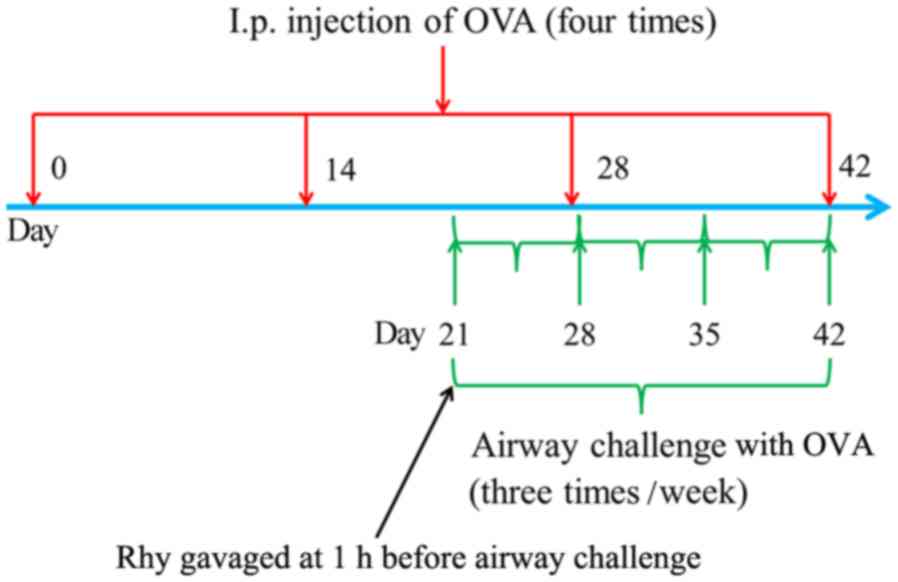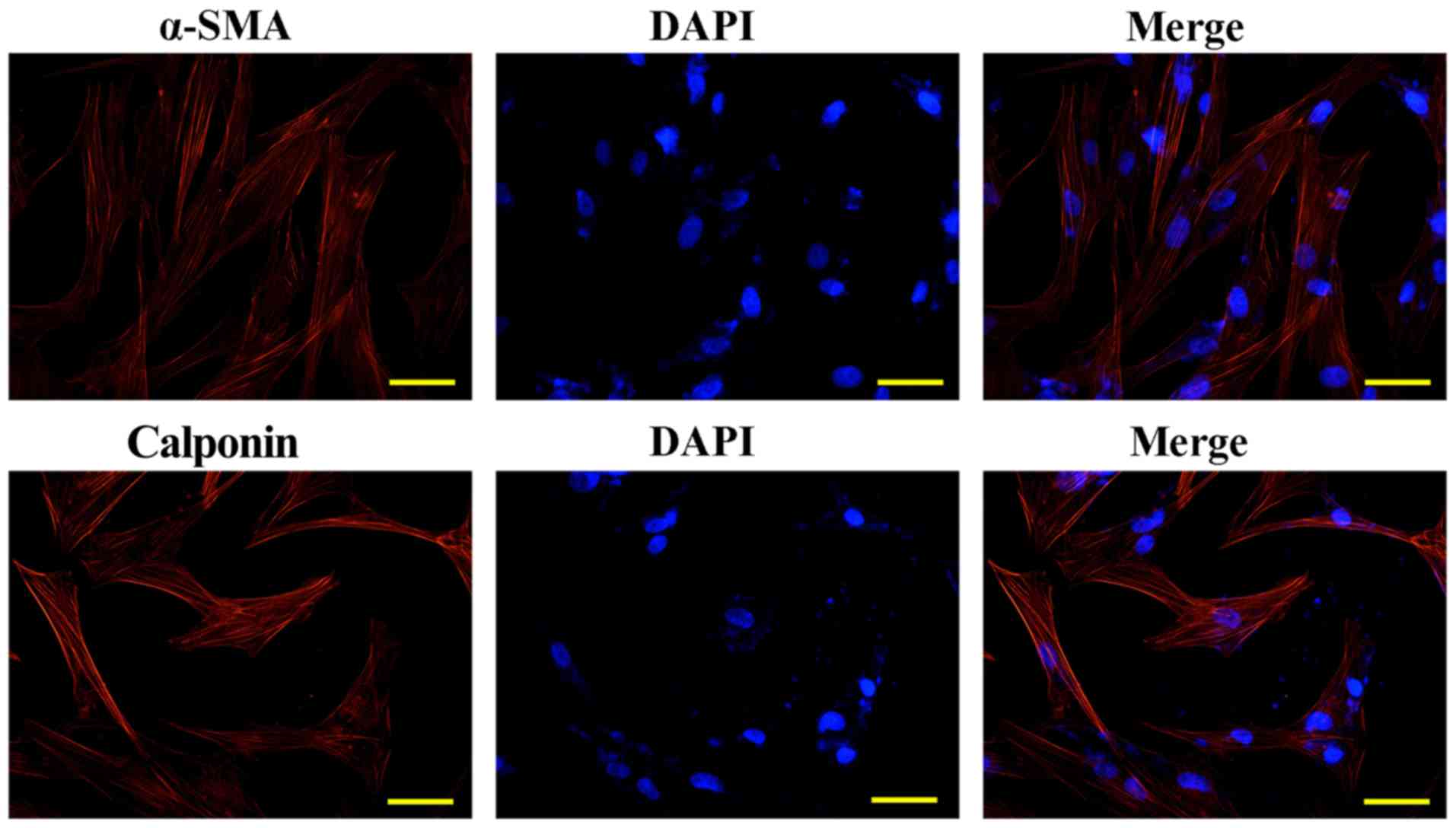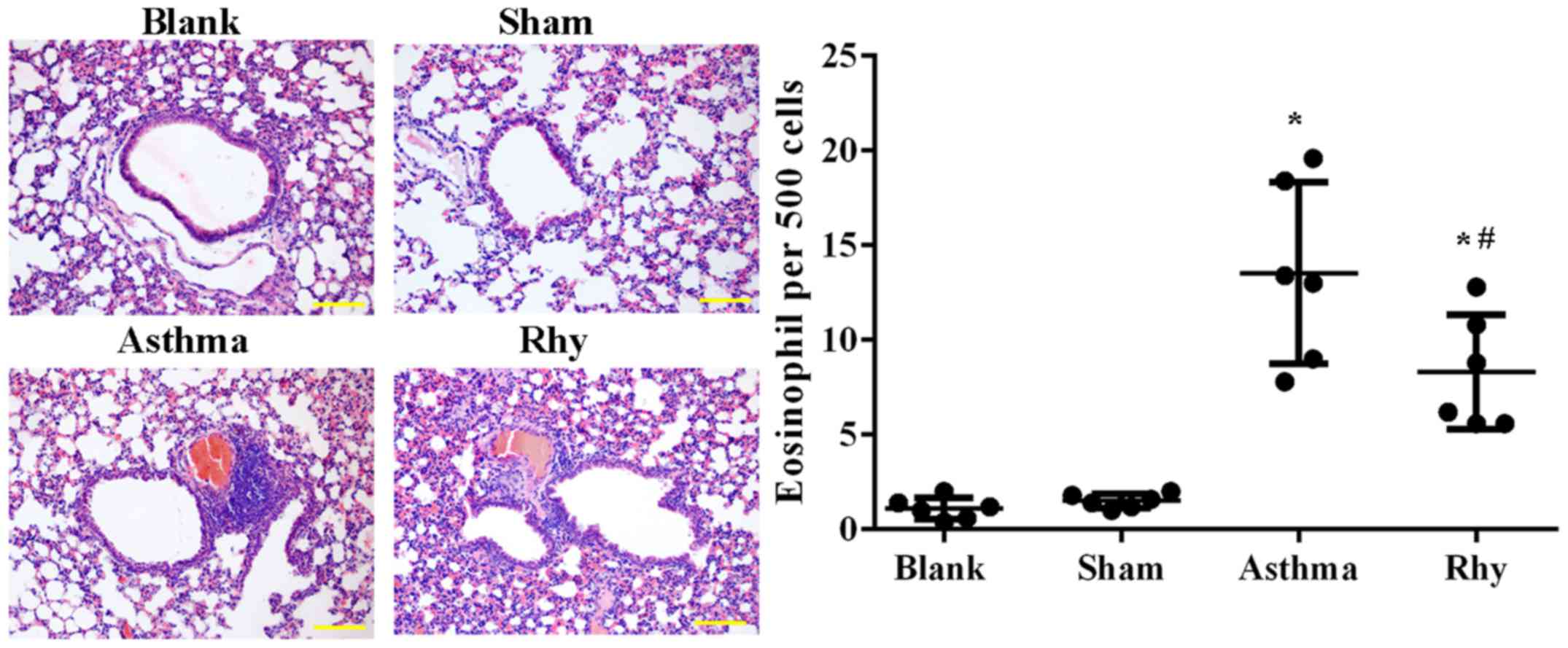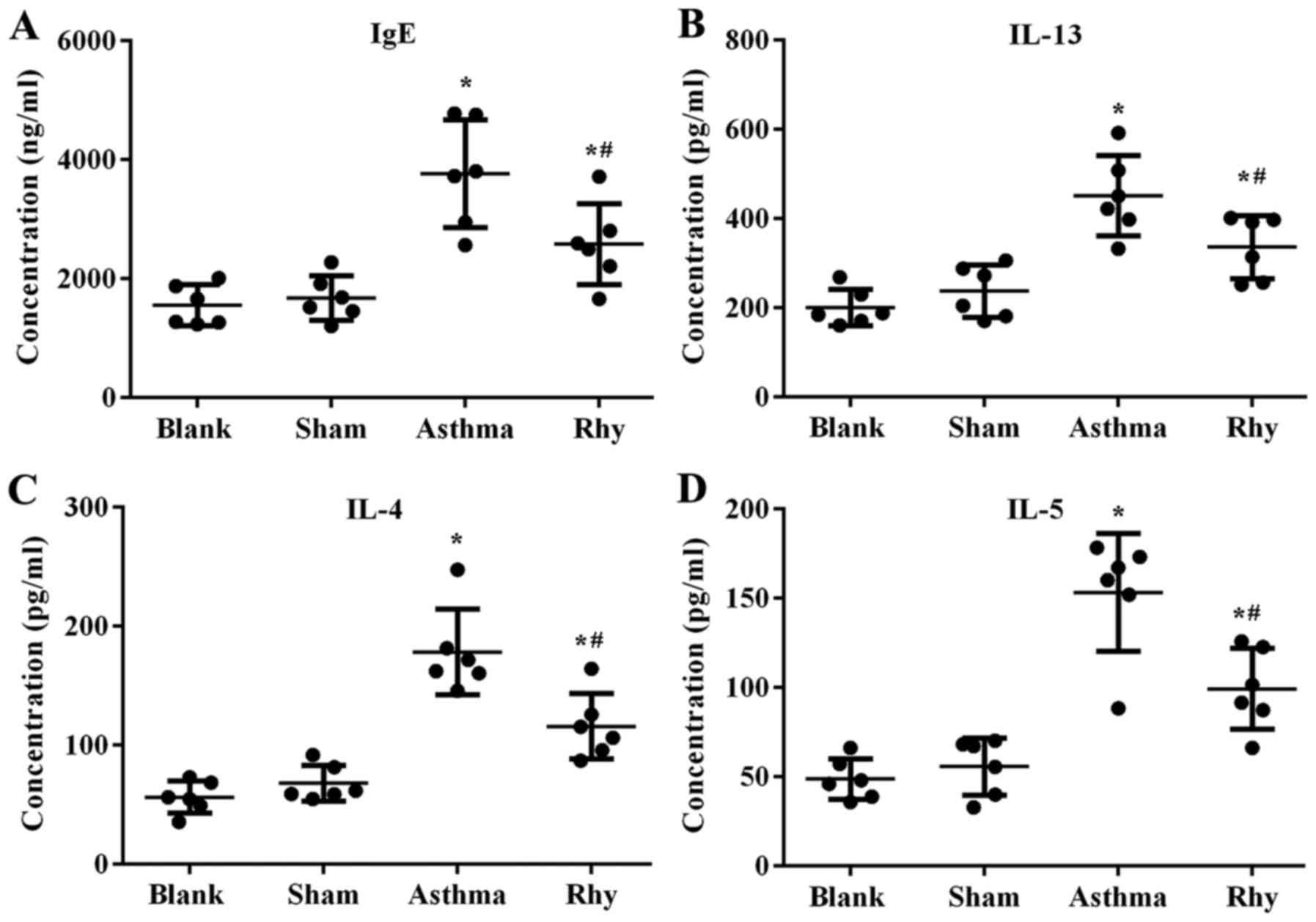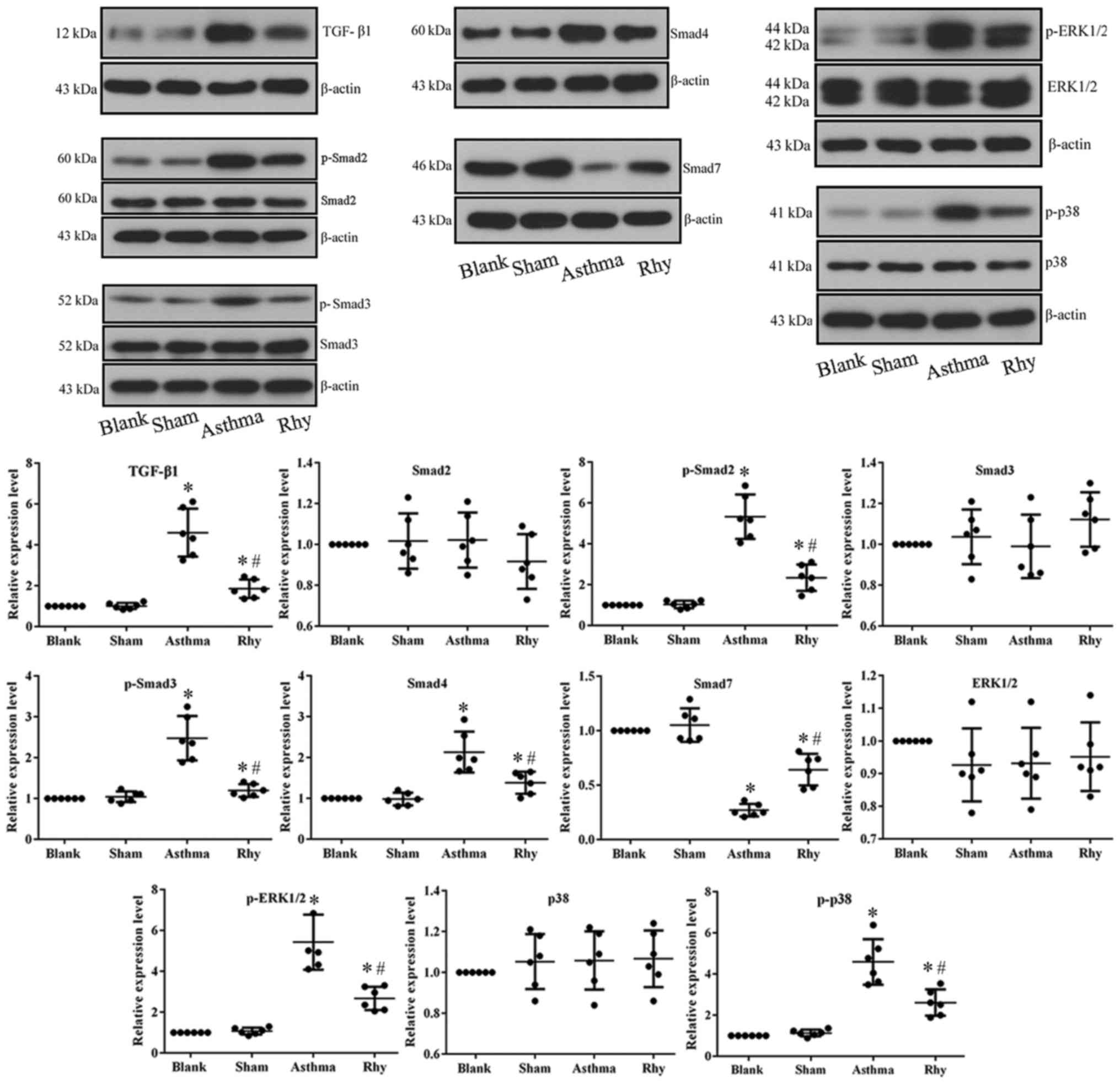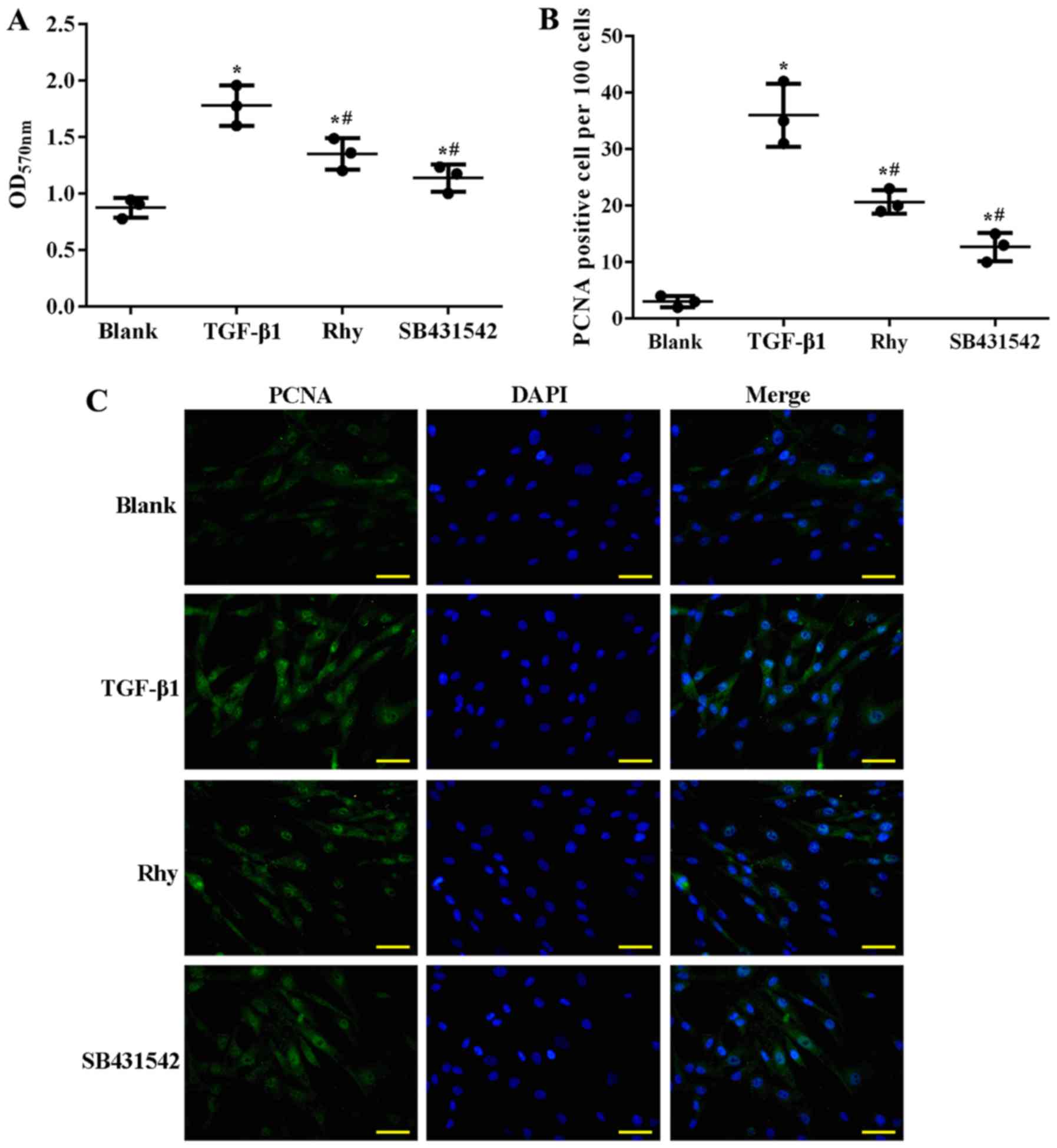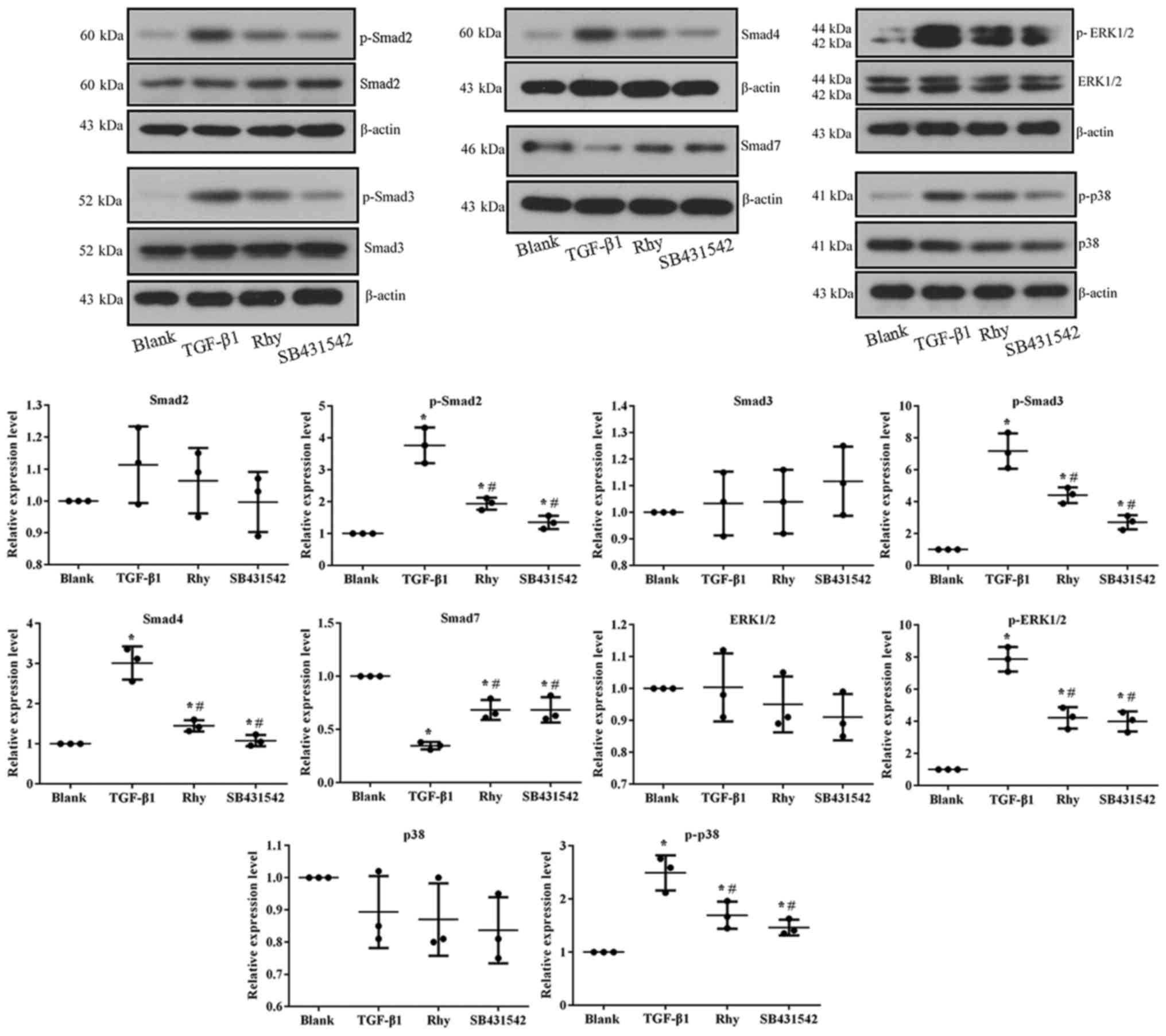|
1
|
Ammit AJ, Hastie AT, Edsall LC, Hoffman
RK, Amrani Y, Krymskaya VP, Kane SA, Peters SP, Penn RB, Spiegel S
and Panettieri RA Jr: Sphingosine 1-phosphate modulates human
airway smooth muscle cell functions that promote inflammation and
airway remodeling in asthma. FASEB J. 15:1212–1214. 2001.
View Article : Google Scholar : PubMed/NCBI
|
|
2
|
Bousquet J, Mantzouranis E, Cruz AA,
Aït-Khaled N, Baena-Cagnani CE, Bleecker ER, Brightling CE, Burney
P, Bush A, Busse WW, et al: Uniform definition of asthma severity,
control, and exacerbations: Document presented for the world health
organization consultation on severe asthma. J Allergy Clin Immunol.
126:926–938. 2010. View Article : Google Scholar : PubMed/NCBI
|
|
3
|
Chung KF, Wenzel SE, Brozek JL, Bush A,
Castro M, Sterk PJ, Adcock IM, Bateman ED, Bel EH, Bleecker ER, et
al: International ERS/ATS guidelines on definition, evaluation and
treatment of severe asthma. Eur Respir J. 43:343–373. 2014.
View Article : Google Scholar : PubMed/NCBI
|
|
4
|
Wenzel SE: Asthma phenotypes: The
evolution from clinical to molecular approaches. Nat Med.
18:716–725. 2012. View
Article : Google Scholar : PubMed/NCBI
|
|
5
|
Pei QM, Jiang P, Yang M, Qian XJ, Liu JB,
Zheng H, Zhao LH and Kim SH: Upregulation of a disintegrin and
metalloproteinase-33 by VEGF in human airway smooth muscle cells:
Implications for asthma. Cell Cycle. 15:2819–2826. 2016. View Article : Google Scholar : PubMed/NCBI
|
|
6
|
Chung KF: Airway smooth muscle cells:
Contributing to and regulating airway mucosal inflammation? Eur
Respir J. 15:961–968. 2000. View Article : Google Scholar : PubMed/NCBI
|
|
7
|
Que CL, Maksym G and Macklem PT:
Deciphering the homeokinetic code of airway smooth muscle. Am J
Respir Crit Care. 161:S161–S163. 2000. View Article : Google Scholar
|
|
8
|
Dunnill MS, Massarella GR and Anderson JA:
A comparison of the quantitative anatomy of the bronchi in normal
subjects, in status asthmaticus, in chronic bronchitis, and in
emphysema. Thorax. 24:176–179. 1969. View Article : Google Scholar : PubMed/NCBI
|
|
9
|
Rao SS, Mu Q, Zeng Y, Cai PC, Liu F, Yang
J, Xia Y, Zhang Q, Song LJ, Zhou LL, et al: Calpain-activated
mTORC2/Akt pathway mediates airway smooth muscle remodelling in
asthma. Clin Exp Allergy. 47:176–189. 2017. View Article : Google Scholar : PubMed/NCBI
|
|
10
|
Derynck R and Zhang YE: Smad-dependent and
Smad-independent pathways in TGF-beta family signalling. Nature.
425:577–584. 2003. View Article : Google Scholar : PubMed/NCBI
|
|
11
|
Chen G and Khalil N: TGF-beta1 increases
proliferation of airway smooth muscle cells by phosphorylation of
map kinases. Respir Res. 7:22006. View Article : Google Scholar : PubMed/NCBI
|
|
12
|
Chen L, Ge Q, Black JL, Deng L, Burgess JK
and Oliver BG: Differential regulation of extracellular matrix and
soluble fibulin-1 levels by TGF-β1 in airway smooth muscle cells.
PLoS one. 8:e655442013. View Article : Google Scholar : PubMed/NCBI
|
|
13
|
Xie S, Sukkar MB, Issa R, Oltmanns U,
Nicholson AG and Chung KF: Regulation of TGF-beta1-induced
connective tissue growth factor expression in airway smooth muscle
cells. Am J Physiol Lung Cell Mol Physiol. 288:L68–L76. 2005.
View Article : Google Scholar : PubMed/NCBI
|
|
14
|
Meng XM, Huang XR, Xiao J, Chung AC, Qin
W, Chen HY and Lan HY: Disruption of Smad4 impairs TGF-β/Smad3 and
Smad7 transcriptional regulation during renal inflammation and
fibrosis in vivo and in vitro. Kidney Int. 81:266–279. 2012.
View Article : Google Scholar : PubMed/NCBI
|
|
15
|
Shi JS, Yu JX, Chen XP and Xu RX:
Pharmacological actions of Uncaria alkaloids, rhynchophylline and
isorhynchophylline. Acta Pharmacol Sin. 24:97–101. 2003.PubMed/NCBI
|
|
16
|
Zhou J and Zhou S: Antihypertensive and
neuroprotective activities of rhynchophylline: The role of
rhynchophylline in neurotransmission and ion channel activity. J
Ethnopharmacol. 132:15–27. 2010. View Article : Google Scholar : PubMed/NCBI
|
|
17
|
Cao W, Wang Y, Lv X, Yu X, Li X, Li H,
Wang Y, Lu D, Qi R and Wang H: Rhynchophylline prevents cardiac
dysfunction and improves survival in lipopolysaccharide-challenged
mice via suppressing macrophage I-κBα phosphorylation. Int
Immunopharmacol. 14:243–251. 2012. View Article : Google Scholar : PubMed/NCBI
|
|
18
|
Qu J, Gong T, Ma B, Zhang L, Kano Y and
Yuan D: Comparative study of fourteen alkaloids from Uncaria
rhynchophylla hooks and leaves using HPLC-diode array
detection-atmospheric pressure chemical ionization/MS method. Chem
Pharm Bull (Tokyo). 60:23–30. 2012. View Article : Google Scholar : PubMed/NCBI
|
|
19
|
Li YL: Effect of rhynchophylline and
isorhynchophylline on the proliferation of artery smooth muscle
cells induced by angiotensin II (Translated). Zhong Guo Yao Li Xue
Tong Bao. 24:62008.(In Chinese).
|
|
20
|
Kamat PK, Rai S, Swarnkar S, Shukla R, Ali
S, Najmi AK and Nath C: Okadaic acid-induced tau phosphorylation in
rat brain: Role of NMDA receptor. Neuroscience. 238:97–113. 2013.
View Article : Google Scholar : PubMed/NCBI
|
|
21
|
Sun AS, Huang XZ, Liu WG, Zhang XD and Ke
MM: The anti-asthma effect of rhynchophylla total alkaloids
(translated). Gui Zhou Yi Yao. 2:1983.(In Chinese).
|
|
22
|
Shin IS, Shin NR, Jeon CM, Kwon OK, Sohn
KY, Lee TS, Kim JW, Ahn KS and Oh SR: EC-18, a synthetic
monoacetyldiglyceride (1-palmitoyl-2-linoleoyl-3-acetylglycerol),
attenuates the asthmatic response in an aluminum
hydroxide/ovalbumin-induced model of asthma. Int Immunopharmacol.
18:116–123. 2014. View Article : Google Scholar : PubMed/NCBI
|
|
23
|
Li J, Liu W, Peng Q, Jiang M, Luo C, Guo
Y, Liu Y, Fang M and Mo Z: Effect of rhynchophylline on conditioned
place preference on expression of NR2B in methamphetamine-dependent
mice. Biochem Biophys Res Commun. 452:695–700. 2014. View Article : Google Scholar : PubMed/NCBI
|
|
24
|
Fu AK, Hung KW, Huang H, Gu S, Shen Y,
Cheng EY, Ip FC, Huang X, Fu WY and Ip NY: Blockade of EphA4
signaling ameliorates hippocampal synaptic dysfunctions in mouse
models of Alzheimer's disease. Proc Natl Acad Sci USA.
111:9959–9964. 2014. View Article : Google Scholar : PubMed/NCBI
|
|
25
|
Kong YH, Shi Q, Han N, Zhang L, Zhang YY,
Gao TX, Chen C and Li YL: Structural modulation of gut microbiota
in rats with allergic bronchial asthma treated with recuperating
lung decoction. Biomed Environ Sci. 29:574–583. 2016.PubMed/NCBI
|
|
26
|
Deng H, Dokshin GA, Lei J, Goldsmith AM,
Bitar KN, Fingar DC, Hershenson MB and Bentley JK: Inhibition of
glycogen synthase kinase-3beta is sufficient for airway smooth
muscle hypertrophy. J Biol Chem. 283:10198–10207. 2008. View Article : Google Scholar : PubMed/NCBI
|
|
27
|
Schuliga M, Harris T, Xia Y, Wang Z, Zhang
X, Lee P and Stewart A: FGF-2 modulates human airway smooth muscle
contractile protein expression and cell stiffness. Eur Respiratory
Soc. 42:P5662013.
|
|
28
|
Ranganna K, Yatsu FM, Hayes BE, Milton SG
and Jayakumar A: Butyrate inhibits proliferation-induced
proliferating cell nuclear antigen expression (PCNA) in rat
vascular smooth muscle cells. Mol Cell Biochem. 205:149–161. 2000.
View Article : Google Scholar : PubMed/NCBI
|
|
29
|
Natarajan R and Nadler JL: Lipoxygenases
and lipid signaling in vascular cells in diabetes. Front Biosci.
8:s783–s795. 2003. View
Article : Google Scholar : PubMed/NCBI
|
|
30
|
Vignola AM, Chiappara G, Chanez P,
Merendino AM, Pace E, Spatafora M, Bousquet J and Bonsignore G:
Growth factors in asthma. Monaldi Arch Chest Dis. 52:159–169.
1997.PubMed/NCBI
|
|
31
|
Duvernelle C, Freund V and Frossard N:
Transforming growth factor-beta and its role in asthma. Pulm
Pharmacol Ther. 16:181–196. 2003. View Article : Google Scholar : PubMed/NCBI
|
|
32
|
Coutts A, Chen G, Stephens N, Hirst S,
Douglas D, Eichholtz T and Khalil N: Release of biologically active
TGF-beta from airway smooth muscle cells induces autocrine
synthesis of collagen. Am J Physiol Lung Cell Mol Physiol.
280:L999–L1008. 2001. View Article : Google Scholar : PubMed/NCBI
|















